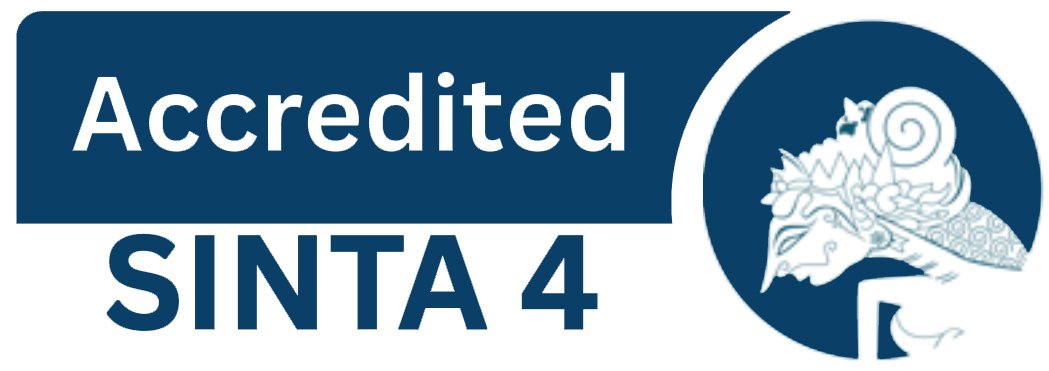Peran Pengelola Posdaya Al-Barokah dalam Pengembangan Kewirausahaan Masyarakat Desa Sekarwangi Kecamatan Rawamerta Kabupaten Karawang
DOI:
https://doi.org/10.22460/p2m.v10i2.4199Keywords:
community organizer role, Posdaya, EntrepreneurshipAbstract
The present study aims to unearth the contribution by Al-Barokah Family Empowerment Service (hereinafter Posdaya) organizers to the promotion of entrepreneurship in the communities and to explore supporting and inhibiting factors of Posdaya project implementation in boosting the entrepreneurial commitment of Sekarwangi Village, Rawamerta District, Karawang Regency. Employing qualitative case study methodology, the research used observation, interview, and documentation techniques to collect the data. Results reveal that the role of the community organizers in general was carried out effectively. This was reflected in Posdaya management of four areas including education, health, economy and environment where learning motivation, healthy living, entrepreneurship and productivity are enhanced. Findings also indicate that the high motivation of the community organizers and residents is the most influential factor supporting the development. While the lack of early childhood educational staff, the lack of educational supports, lack of building capacity; the lack of capital and unorganized administrative accounting; the lack of healthcare providers, and the lack of facilities and infrastructure are the major obstacles to the education, economic, and health empowerment.
References
Alhadihaq, M. Y., & Ansori, A. (2022). Literasi Kewirausahaan Dan Daya Saing Usaha Yang Berkelanjutan (Studi pada Kelompok Belajar Usaha Konveksi Bandung). Jurnal Ilmiah P2M STKIP Siliwangi, 9(1), 54-59.
Ansori, A., & Rosita, T. (2018). Increasing economic capacity of rural community through the use of local ecological potency based. Journal of Nonformal Education, 4(1), 89-96.
Ansori, A., Kamil, M., & Hufad, A. (2023). Santri Entrepreneurial Model and its Implementations as Community Empowerment Programs. Journal of Nonformal Education, 9(2), 241-250. doi:https://doi.org/10.15294/jne.v9i2.43322
Arikunto, Suharsimi. (2011). Prosedur penelitian : suatu pendekatan praktik. Jakarta : Rineka Cipta.
Hamali, A. Y. (2016). Pemahaman strategi bisnis dan kewirausahaan. Jakarta: Prenadamedia.
Muldjono, P. (2010). Model Pemberdayaan Masyarakat melalui Posdaya (Pos Pemberdayaan Keluarga): The Model of Family Empowerment Program for Community Empowerment. Jurnal Masyarakat, Kebudayaan dan Politik, 23.
Safitri, A. O., Yunianti, V. D., & Rostika, D. (2022). Upaya peningkatan pendidikan berkualitas di Indonesia: Analisis pencapaian sustainable development goals (SDGs). Jurnal Basicedu, 6(4), 7096-7106.
Santika, T., Fadili, D. A., Dewi, R. S., & Ansori, A. (2023). Pendampingan pemberdayaan masyarakat melalui Usaha Mikro Kecil Menengah (UMKM) di Desa Kalijati Kecamatan Jatisari Kabupaten Karawang. Abdimas Siliwangi, 6(2), 435-443.
Saragih, R. (2017). Membangun usaha kreatif, inovatif dan bermanfaat melalui penerapan kewirausahaan sosial. Jurnal Kewirausahaan, 3(2), 26-34.
Sugiyono. (2017). Metode penelitian kuantitatif, kualitatif, dan R&D. Bandung: ALFABETA.
Suryana, Y; Bayu, K. (2015). Kewirausahaan: pendekatan karakteristik wirausahawan sukses. Jakarta: Kencana.
Suyono H dan Haryanto R. (2009). Buku Pedoman Pembentukan dan Pengembangan Pos Pemberdayaan Keluarga POSDAYA. Balai Pustaka: Jakarta



















